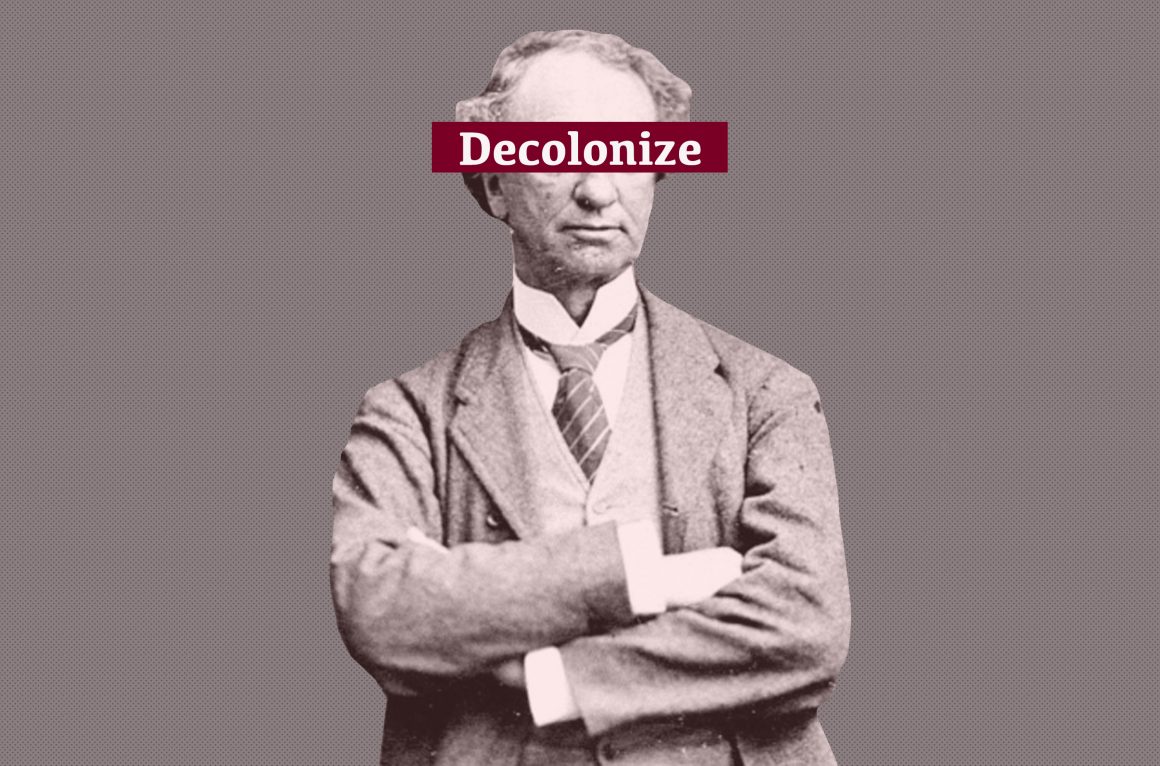
Political Science Association holds first event online
By Luis Armando Sanchez Diaz, September 15 2020 —
On Aug. 27, the Political Science Association (PSA) held its first event as the fall term approached. It was open to everyone who wanted to join the conversation about Decolonizing Canada. Keynote speaker Dr. Daniel Voth, Associate Professor at the University of Calgary in the sub-field of Canadian Politics and Indigenous studies, delivered a lecture about colonialism.
The lecture discussed the definition of colonialism, the different types of colonies that exist, the impact that colonialism still has today, and how the current social system in Canada was created based on the oppression of Indigenous peoples and the exploitation of their lands.
An important concept evaluated during the event was “settlement colonies.” They are a type of colony where people intend to stay permanently in the area that they’ve colonized, exploiting not only the lands and its resources, but also the Indigenous people as well as getting involved in the governing of the area. Dr. Voth, who is a Métis graduate from the University of Winnipeg, stressed how settlement colonies like Canada continue to maintain a racist system towards Indigenous communities.
When asked during the event by the Gauntlet about why he thinks Canadians are very receptive towards foreigners but not to the values, faith and culture of the First Nations, he pointed out the role that a country’s borders play in the way its society thinks about immigration.
“When you think about the United States, they have a border with Mexico, they have a very different relationship with Mexico. For France it is North Africa. [Canada is] surrounded on three sides by the cold ocean, and our southern border is with the northern states,” he said.
The fact that there isn’t a constant flow of people crossing the border influences Canadian opinions toward immigration.
Voth proceeded by emphasizing how welcoming Indigenous people are, even when faced with the many issues a settler-colonial state presents.
“Lots of Indigenous elders talk about our duty and obligation to be a good host. ‘Come here, live by the Treaty, be respectful of other political orders and let’s try to figure out how to live well together.’ It’s so generous in the face of so much deceit.”
When talking about colonialism from a race perspective, Voth pointed out the need for political parties to improve their work when it comes to designing and implementing public policies.
“[Anti-Indigenous racism] is never going to go away as long as Canada looks anything like it does today,” he said.
Voth noted the necessity for society to acknowledge that there’s still a lot of work to be done.
“Reserves are still a fraction of the size they should be, land thefts have gone unresolved and Métis dispossession is unaddressed.”
The conversation lasted over an hour-and-a-half and many students participated by posing their own questions about decolonization. The event offered meaningful information concerning the Indigenous community in Canada and a better understanding of the still-ongoing, long fight to achieve an equal society.
The PSA will continue to hold events throughout the academic year open to anyone who wants to join.
“Our club fosters a safe space for students to learn about and grow their interest in politics,” said PSA president Sinit Abraha.
She made sure to mention that students don’t have to be political science students to attend events, noting the academic diversity of the association and the fact that there are members from almost every faculty. She encourages students to participate, and says that the events this year will focus on “discussions to enhance our understanding of politics on all levels in our lives.”
“The events will help to open our minds to new perspectives and considerations like gender, race and the role we can play in the global order,” said Abraha.
Dr. Voth, who also serves as the Director of the International Indigenous Studies Program on campus, is currently working on a research project examining colonialism and race politics in Canada to create awareness of the topic. In a follow-up email to the Gauntlet, he highlighted the Indigenous strategy implemented by U of C in 2017, called ii’ taa’ poh’ to’ p (a place to rejuvenate and re-energize during a journey) which you can read here. Its statement of purpose notes that it will work as a living document that “will guide the University of Calgary on its path of transformation and communicate its commitment and responsibility for truth and reconciliation.” He also pointed out the resources available for students at the Office of Indigenous Engagement.
